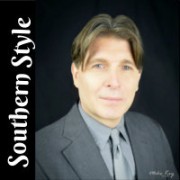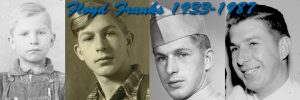Lee Greenwood, a point of light
When I started my crossover career into country music in the 1980s, one of the shining stars was Lee Greenwood. He is still being recognized as a Point of Light.
The Grammy®-winning artist was honored with the Point of Light Award. created by the administration of President George H. W. Bush, the Daily Point of Light Award honors individuals and groups creating meaningful change in communities across America.
Greenwood, who was recently named one of Billboard’s 100 Greatest Country Artists of All Time, has done over 30 tours with the USO and is an ambassador for non-profit organization, Help A Hero. Despite his great musical success, Greenwood says he is most proud of what he can give back to his country and those who have served.
 “I count it a privilege to be in a position to brighten a veteran’s day or help unite the country after a tragedy like 9-11 and I am honored to be named as a Daily Point of Light by our beloved president, George H.W. Bush,” he said. “Knowing that this award is the largest organization dedicated to volunteer service, I consider this to be one of my most prestigious honors.”
“I count it a privilege to be in a position to brighten a veteran’s day or help unite the country after a tragedy like 9-11 and I am honored to be named as a Daily Point of Light by our beloved president, George H.W. Bush,” he said. “Knowing that this award is the largest organization dedicated to volunteer service, I consider this to be one of my most prestigious honors.”
Greenwood was presented the Points of Light Award in August by the Chairman of Helping a Hero, Chris Daniel. Points of Light works in partnership with companies, foundations, government agencies and nonprofits to achieve the greatest impact.
“Lee inspires me and I still get goosebumps every time I hear him sing or watch him present the keys to a specially adapted home to one of our wounded warriors,” said Meredith Iler, Chairman Emeritus of Helping a Hero. “It was an honor to nominate Lee for the Daily Point of Light award and to surprise him with the Daily Point of Light Award alongside dozens of wounded warriors who love and respect him.”
Helping a Hero is a non-profit, founded in 2006, that provides support for military personnel severely injured in the war on terror. Their principal activity is to provide specially adapted homes for qualifying service members through partnerships made with the builders, developers, communities, and the veteran. To learn more, or to donate, visit www.helpingahero.org.
Throughout his expansive career, international country music icon Lee has earned multiple CMA and ACM Awards, a Grammy Award for Top Male Vocal Performance on “I.O.U,” in 1985, and a multitude of other prestigious award nominations. His discography includes twenty-two studio albums, seven compilation albums, seven No. 1 hits and thirty-eight singles including songs like “It Turns Me Inside Out,” “Ring on Her Finger Time on Her Hand,” “She’s Lyin,” “I don’t Mind the Thorns if You’re the Rose,” “Dixie Road,” “Somebody’s Gonna Love You,” “Going Going Gone,” “You Got a Good Love Comin,” among others. His stand-out hit “God Bless the U.S.A.” has been in the top five on the country singles charts three times (1991, 2001 and 2003), giving it the distinction of being the only song in any genre of music to achieve that feat.
His latest book release is a children’s book called “Proud To Be An American,” which is currently available in stores, on Amazon and LeeGreenwood.com.
Lee Greenwood continues to spread his patriotism through his current tour across America. For more information on Lee Greenwood, please visit leegreenwood.com and follow him on Twitter, Facebook and Instagram..


 Featuring Mullins alongside bluegrass veterans Mike Terry (mandolin), Jason Barie (fiddle), Randy Barnes (bass), and Duane Sparks (guitar), The Story We Tell showcases the band’s most inventive and innovative arrangements to date, both vocally and instrumentally on 12 tracks. With an approach to the music that rings with authenticity, the band secures a rightful place among the traditional guard of bluegrass while standing comfortably shoulder to shoulder with more progressive type artists who find themselves drawn to not only JMRR’s music, but their down-home, likable nature.
Featuring Mullins alongside bluegrass veterans Mike Terry (mandolin), Jason Barie (fiddle), Randy Barnes (bass), and Duane Sparks (guitar), The Story We Tell showcases the band’s most inventive and innovative arrangements to date, both vocally and instrumentally on 12 tracks. With an approach to the music that rings with authenticity, the band secures a rightful place among the traditional guard of bluegrass while standing comfortably shoulder to shoulder with more progressive type artists who find themselves drawn to not only JMRR’s music, but their down-home, likable nature.

 I have been very pleased to watch many of the youth I once performed with on our stage achieve greater opportunities and see some of their aspirations bring them to the attention of people from around the world. Two talented North Carolina youth who came to our Share America stage with their father Sam in 2008 are vocalist/fiddler Summer Brooke McMahan and banjo stylist Brayden McMahan on banjo with their band Mountain Faith.
I have been very pleased to watch many of the youth I once performed with on our stage achieve greater opportunities and see some of their aspirations bring them to the attention of people from around the world. Two talented North Carolina youth who came to our Share America stage with their father Sam in 2008 are vocalist/fiddler Summer Brooke McMahan and banjo stylist Brayden McMahan on banjo with their band Mountain Faith. I sat in the artist green room at International Country Music Fan Fair between event appearances catching a break from the 25,000 fans who had come to Music City to meet the stars up close and personal. Over the years the chats sitting around the green room included folks such as Kenny Chesney, Paulette Carlson, Neal McCoy and countless others. On one of these breaks, I experienced a favorite conversation I shared in country music with Charley Pride. He came in and sat down beside me, introduced himself and then spent the next few minutes asking me about my life and career. It was such an honor feeling that this country music icon was interested in my work. I had always been interested and enthused by his. He is one of my favorites of all time.
I sat in the artist green room at International Country Music Fan Fair between event appearances catching a break from the 25,000 fans who had come to Music City to meet the stars up close and personal. Over the years the chats sitting around the green room included folks such as Kenny Chesney, Paulette Carlson, Neal McCoy and countless others. On one of these breaks, I experienced a favorite conversation I shared in country music with Charley Pride. He came in and sat down beside me, introduced himself and then spent the next few minutes asking me about my life and career. It was such an honor feeling that this country music icon was interested in my work. I had always been interested and enthused by his. He is one of my favorites of all time.